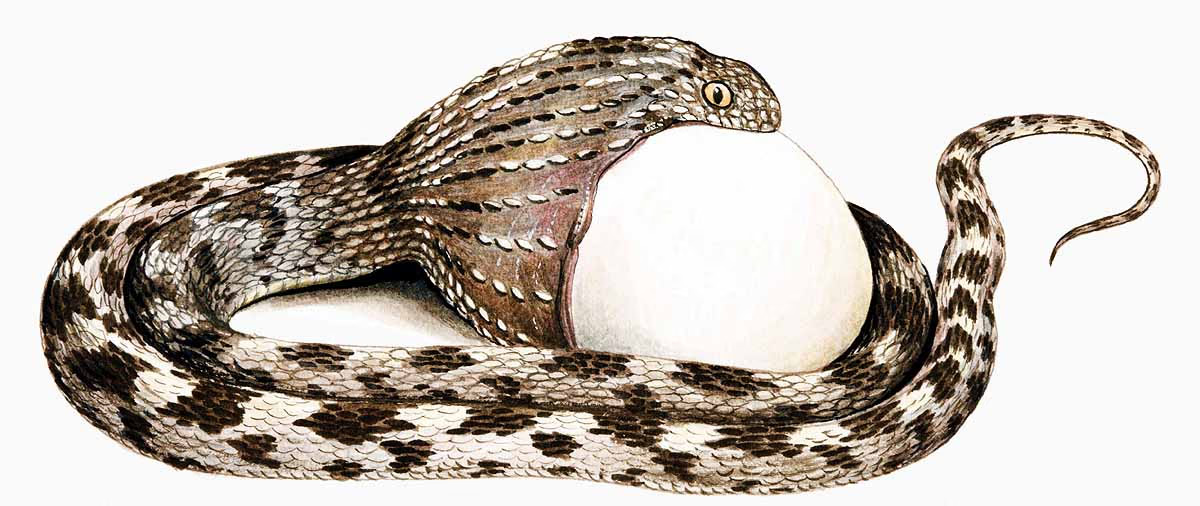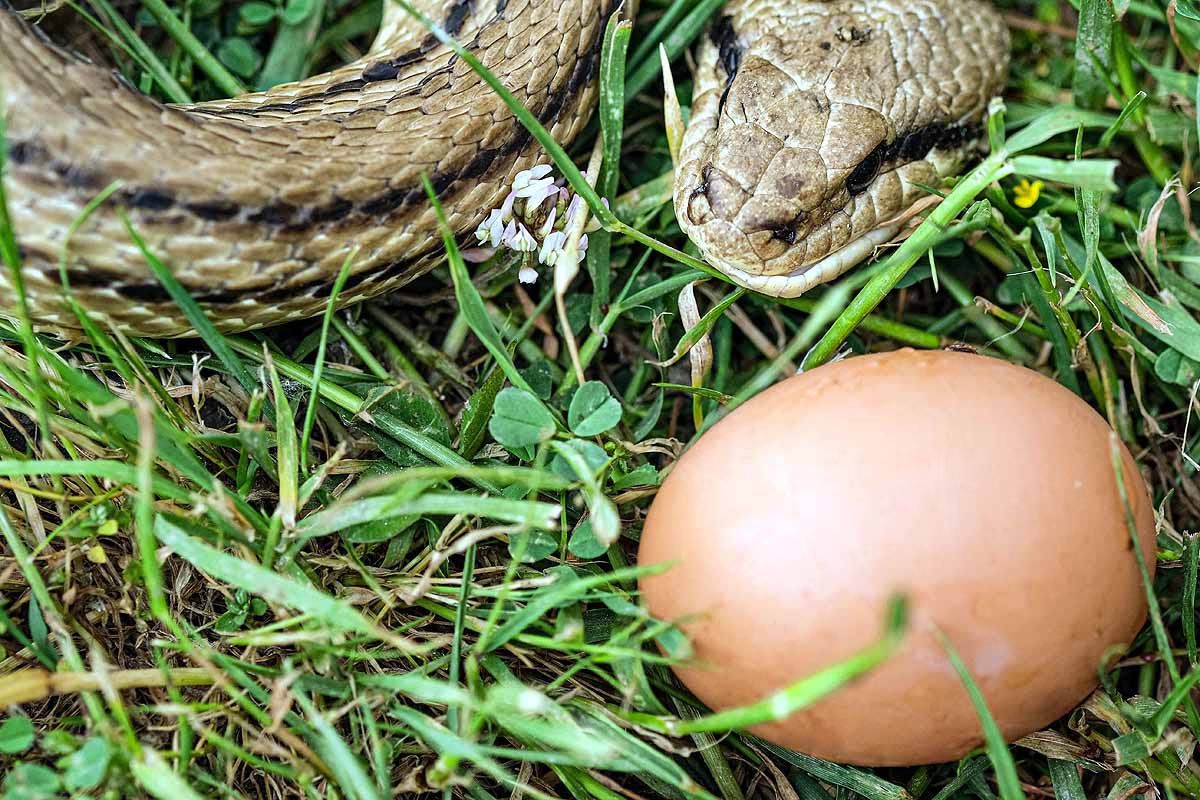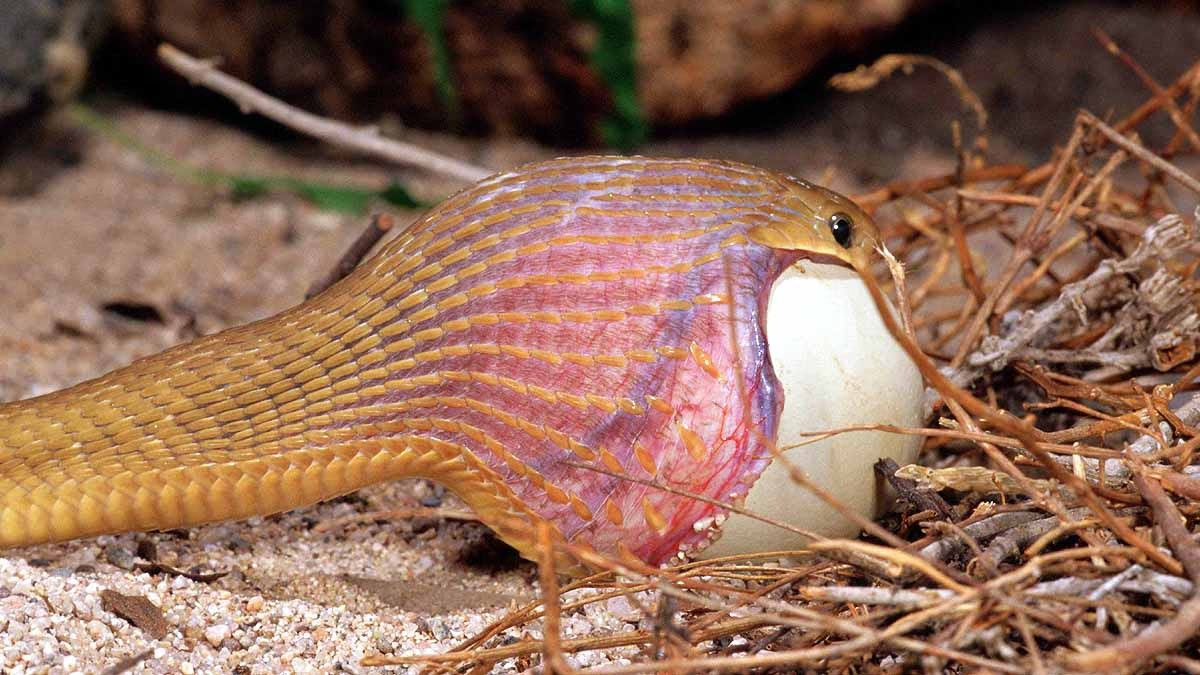Contrary to common belief, snakes do not generally eat their eggs or offspring due to hunger. It's true that some species may resort to such actions under extreme circumstances, but it's not a common trait among all snakes.
It's a misconception that snakes fail to recognize their eggs or offspring. They are quite adept at identification. Certain python and cobra species take great care to protect their eggs, using their body to incubate and help the developing snakes hatch.
So why might a snake eat its own eggs? This typically happens in dire situations. No creature willingly eliminates its young. It's a choice made when faced with extraordinary hardship.

Source: aajtak
When do snakes eat their eggs or offspring? This behavior is restricted to certain situations and is not common. Most species prioritize the protection of their progeny.
Nutrition is sometimes a factor: a snake might consume an egg to survive, especially if it's filled with proteins that provide energy for tough times.
As a part of a reproductive strategy, some snake species might consume their eggs to recycle nutrients and conserve energy for future breeding. They selectively consume only a few eggs, ensuring the survival of the remaining clutch.

Source: aajtak
There are also natural reasons. Snakes may eat their eggs if there's a risk of predation or if the eggs are likely to spoil. In doing so, they eliminate potential conflicts and conserve energy.
Stress, pressure, and anxiety can also lead some snakes to consume their offspring. Such emotional states often result from environmental stressors or predators.
Last but not least, genetic tendencies within certain snake species might naturally lead to such behavior. Evolution has embedded this trait in their behavior, serving as a pragmatic breeding strategy. However, it's essential to understand that this is not the norm for all snakes.




